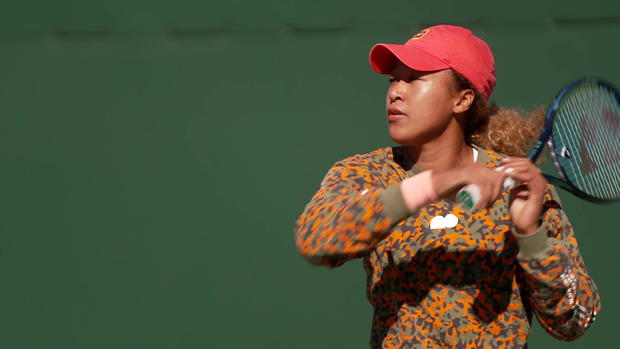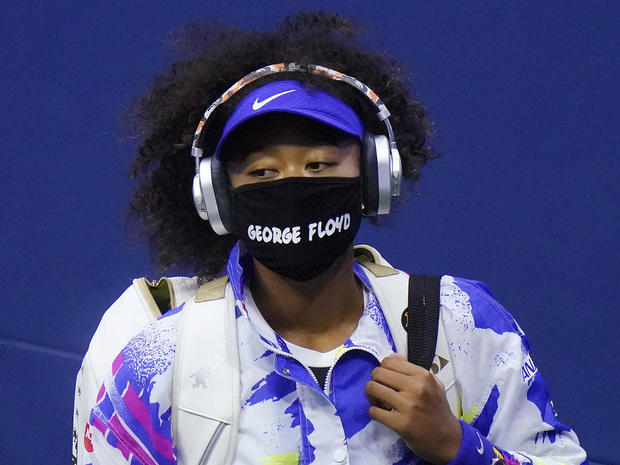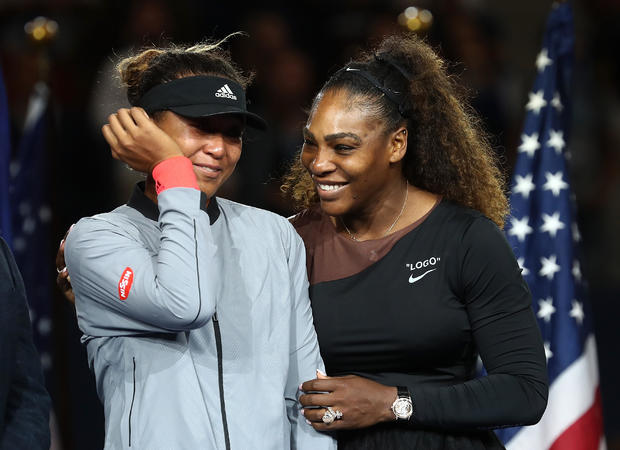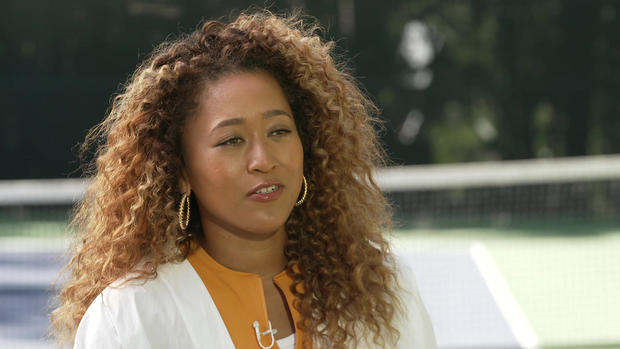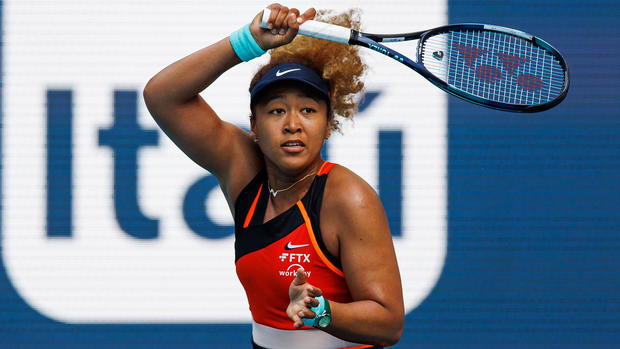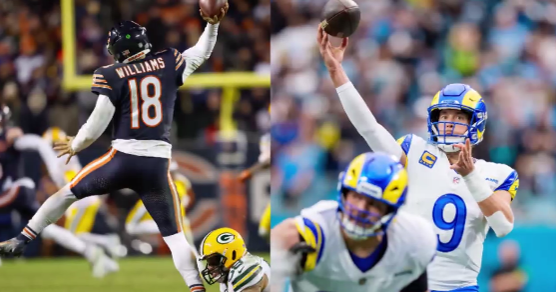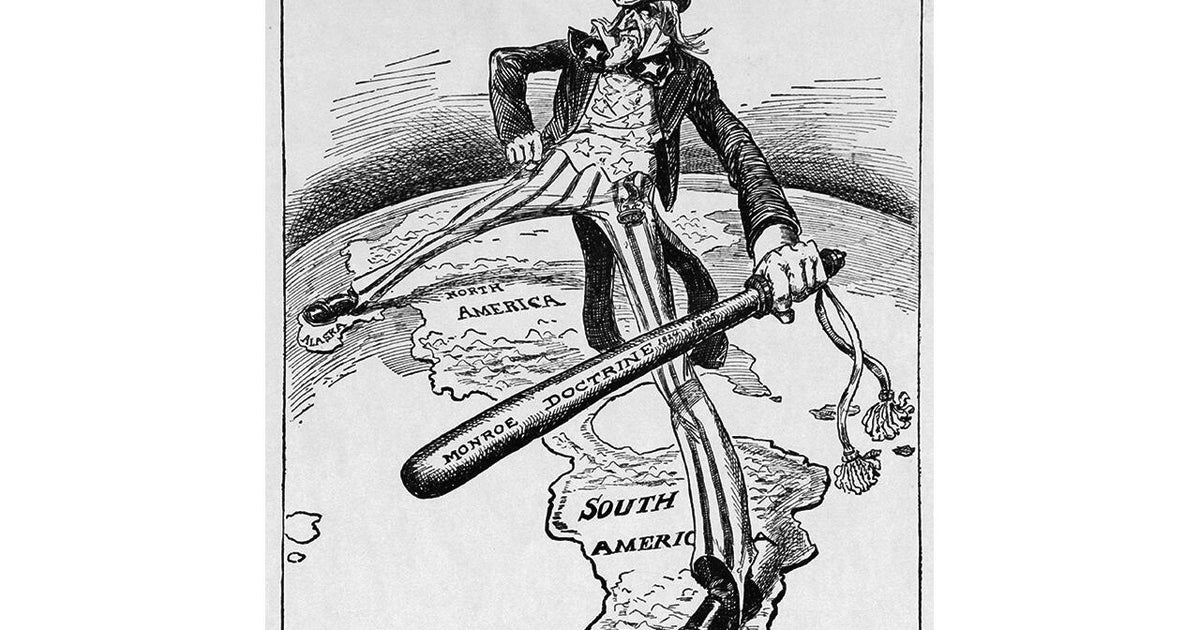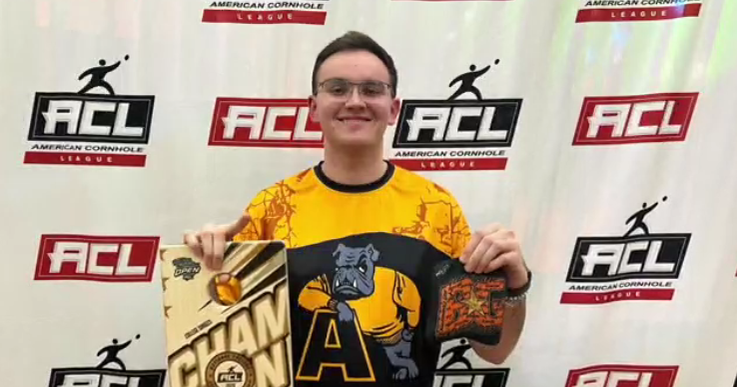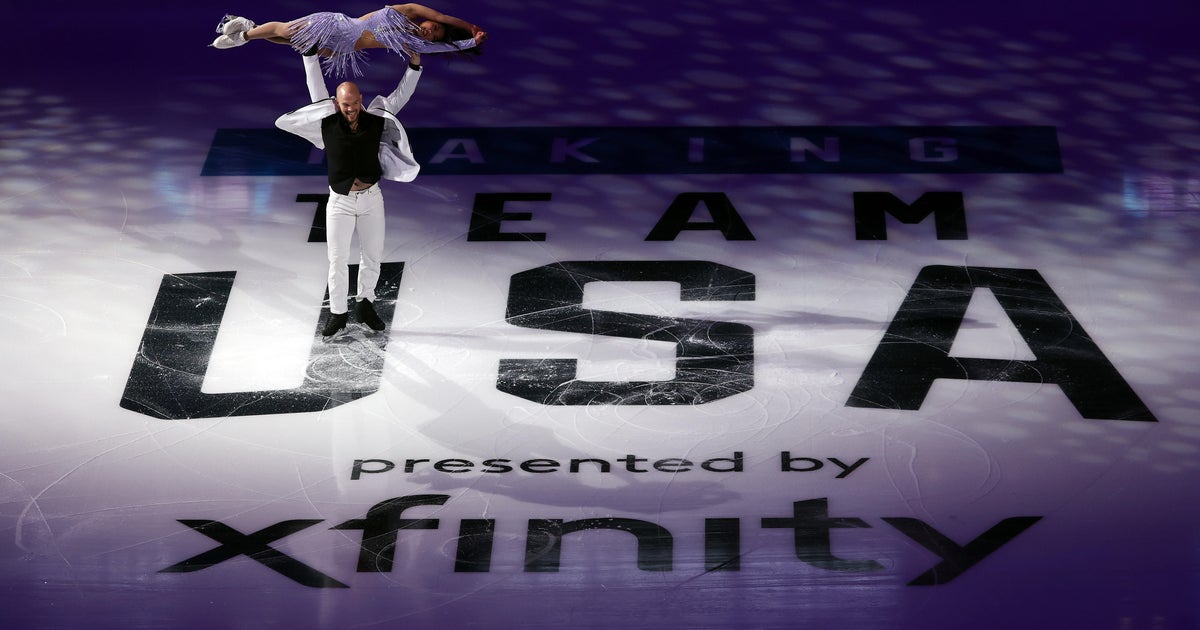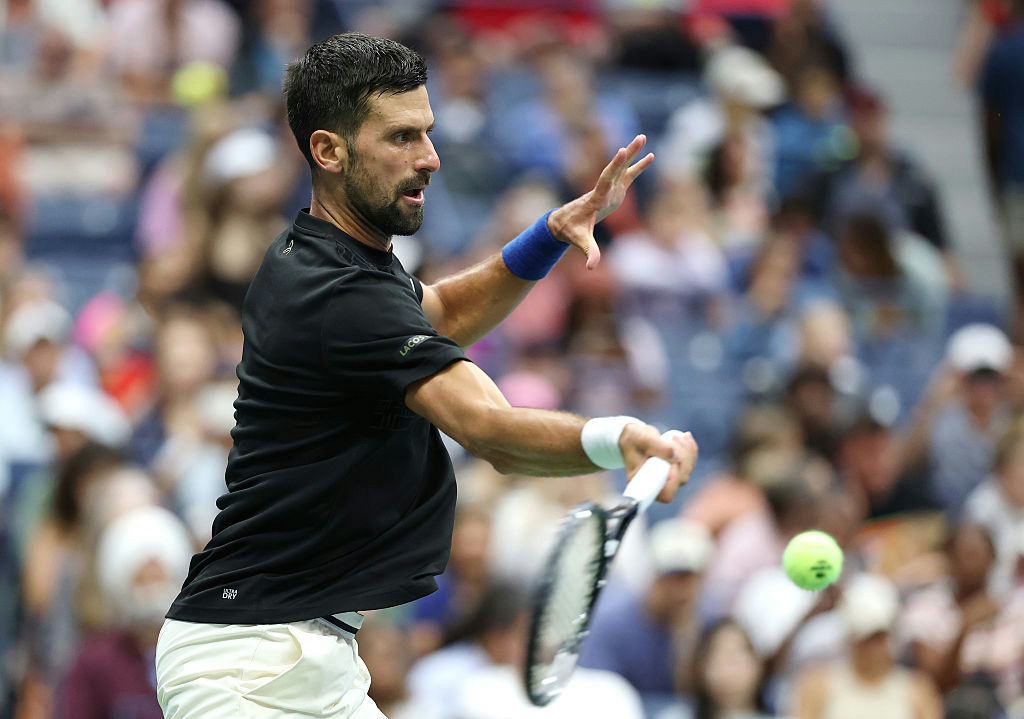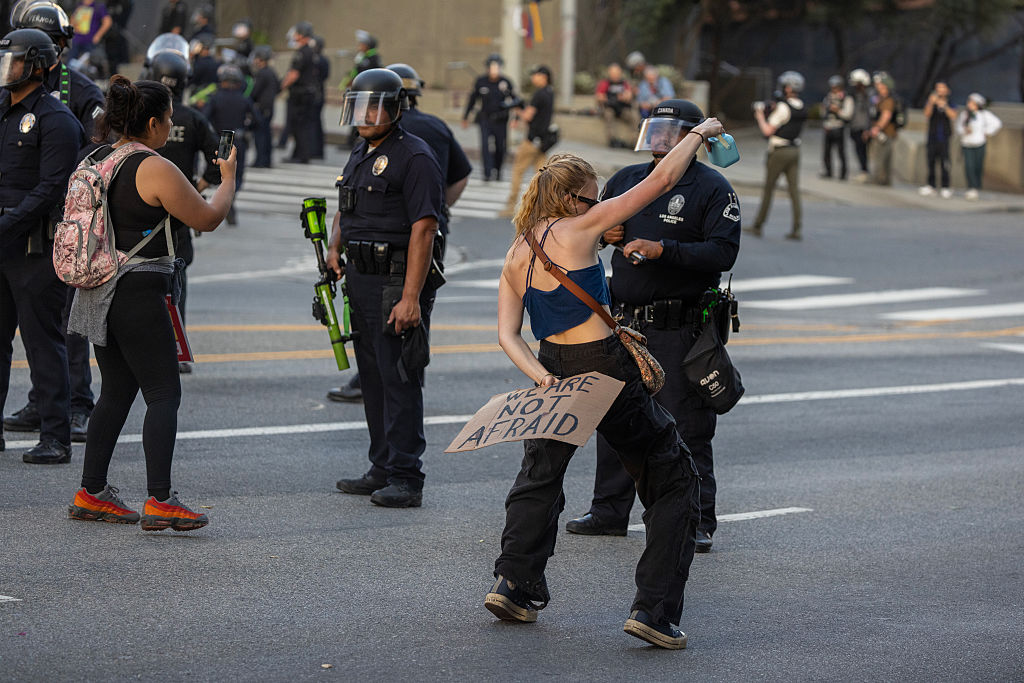Naomi Osaka on finding the power of her voice
Just watch her hit a few balls and there's no denying, Naomi Osaka has power. At 24 she's won four Grand Slams (the U.S. and Australian Opens, both twice), and last summer she lit the Olympic cauldron at the Tokyo Games, representing her birth country, Japan.
But for all that superhuman strength, Osaka has also made a point of showing just how human she really is. At Wimbledon in 2019, she told an interviewer, "I feel like I'm about to cry."
And at the 2021 U.S. Open she shared how she struggles with the incredibly public nature of her job, telling a press conference, "I honestly don't know when I'm going to play my next tennis match … I think I'm gonna take a break from playing for a while."
Osaka told "Sunday Morning," after she'd just returned from a two-month break, "I know some people are going to think, why did this come up all of a sudden? But it's not all of a sudden."
Correspondent Tracy Smith asked, "This is a simple question, but maybe it's not so simple: Do you like tennis?"
"Me? Yeah. I mean, I love tennis," she replied. "I think I had to take a little step back from it just to see the full picture again."
That "step back" started in 2021, with her decision to pull out of the French Open rather than attend the required press conferences.
She explained: "You can't really see the people you're talking to. And they're just asking you questions after questions."
On social media, Osaka cited her mental health: "I have suffered long bouts of depression … and i have had a really hard time coping with that."
Smith asked, "Your decision with the French Open, obviously it was about protecting yourself. But were you trying to say something else?"
"Of course, the goal was to protect myself, whether I knew it or not," Osaka said. "I've been kind of watching athletes struggle for a while. And I vividly remember, like, every time someone says something about the world or politics, that you'd be told, like, 'You're just a sports person, blah, blah, blah.'"
"You're an athlete and so you're not allowed to talk about issues?"
"Yeah. So then, I kind of felt like, 'Oh, I feel like we must not be allowed to have feelings, in a way.' Just, like, kind of go out there, perform, and then go back in. I always think that my way of doing things, I want to make life a bit easier for the people that come behind me."
It wasn't the first time the seemingly shy Osaka found her voice. In fact, she may have made her loudest statement by saying nothing at all. At the 2020 U.S. Open, she decided to make and wear seven different masks, each with a name – a silent tribute to Black victims of racial injustice.
Smith asked, "Did it do what you wanted it to do?"
"For me, the realization moment was watching a program in Japan on, like, every name and every person that I had on the masks," she replied.
Naomi Osaka was born in Osaka, Japan, to a Japanese mother, Tamaki, and Haitian father, Leonard.
The family moved to New York when Naomi was three, and Leonard started teaching Naomi and her sister, Mari, tennis, modeling their training after two other sisters, Venus and Serena Williams. Mari also played professionally for a while, but retired. Naomi stayed with it.
"I came from a mom that worked for basically my entire childhood to put me through tennis," Osaka told Smith. "My dad, who was with me the entire time. And I knew that they had a really hard time, you know?
"Tennis is an expensive sport. So, just to put two kids through that and just, I guess, believe in them so much is something that – I always call my parents a bit crazy. Because that's definitely a dream. But I think they completed that, and I am where I wanted to be as a kid."
The dream came true fairly quickly. At age 20, Osaka won her first Grand Slam, defeating her idol, Serena Williams, at the 2018 U.S. Open.
And Osaka kept winning. Just three years later she'd become the highest-paid female athlete in the world, ever, endorsing everything from sneakers to salads.
When she withdrew from the French Open last year, not a single sponsor withdrew their support. And fellow athletes praised her for opening up a much-needed discussion about mental health.
Smith said, "Michael Phelps said – and I'm sure he's not the only one – that you probably saved a life doing what you did."
"At the time that that happened, I was really sad," Osaka said. "And honestly, I was a bit embarrassed, 'cause I've never received, like, media attention like that before. And I didn't really know how to cope with it.
"I don't know, I was kind of hiding inside my house for, like, two weeks. But when I came out to, like, go to the grocery store or something, there was a woman that came up to me. And she was saying how her son deals with anxiety and stuff and I really helped him out a lot.
"And I think that was a moment that I realized, like, 'Oh … I might have actually, like, helped someone.;' And even though I was a bit scared, I was happy with the choice that I made."
And now, she has a new venture: after Osaka learned that people of color who get skin cancer have a higher mortality rate, she started a skincare line with sunscreen in it called Kinlò. She said, "When I was little, I didn't put on sunscreen at all. Because I felt like I didn't need it, you know? … Growing up, there was always this thing of, like, 'Your melanin will protect you.'"
Early this year, while her business was taking off, Osaka struggled in matches. But at a tournament in Miami in March she made it to the finals. She told the crowd, "This is one of the funnest times of my life. So, I'm really grateful. I wanna say thank you everyone."
It seems she does like tennis. But more than that, Naomi Osaka has found true success isn't always measured with a scoreboard.
"I honestly never truly had a year like this," she said. "So, I'm grateful for it. I think it made me a lot stronger and a lot more grateful, you know? There's so many other things going on in the world right now. And I think that it just made me at peace with myself."
For more info:
Story produced by Sari Aviv. Editor: Remington Korper.
